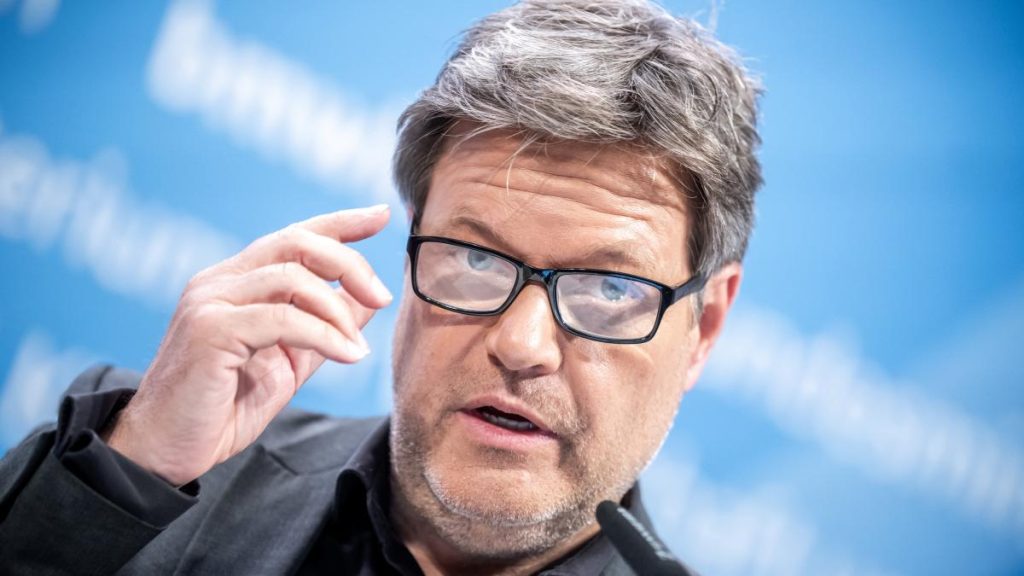Green Economy Minister Robert Habeck has strongly rejected the proposal of CSU leader Markus Söder for a new Grand Coalition between the Union and SPD after the next federal election. Habeck stated that all current problems in Germany are a result of the previous Grand Coalition and criticized Söder for suggesting that the Greens and Olaf Scholz are not capable of governing. Habeck highlighted various issues such as empty gas reserves, misjudgment of Vladimir Putin, lack of European perspective for Ukraine, stalled energy transition, labor shortages, and inadequate immigration policy as examples of the Grand Coalition’s failures. He emphasized that the Grand Coalition is not the solution but the cause of Germany’s problems.
Habeck further criticized the CSU as the biggest problem within the Grand Coalition, stating that it is ironic for the coalition to be seen as the answer to future challenges. He accused the CSU of being responsible for controversial policies such as the foreigner toll, expensive network expansion, and obstructing constructive politics. Habeck emphasized that the Grand Coalition is not the solution to Germany’s problems but rather the root cause of them. He expressed disbelief that the CSU, which he sees as contributing to Germany’s issues, would audaciously claim to know how the country should be governed.
Acknowledging that the traffic light coalition of SPD, Greens, and FDP has not met expectations, Habeck admitted that it has not inspired much hope for progress and is associated with negative connotations. He suggested that there may still be a chance for the coalition to turn things around and believes that it is not completely hopeless. Habeck’s comments come after CSU leader Söder proposed the idea of a new Grand Coalition following the next federal election and raised doubts about the capability of the Greens and Olaf Scholz to govern effectively.
Habeck’s remarks were made during a congress in Berlin, where he highlighted the failures of the Grand Coalition and criticized the CSU for its role in contributing to Germany’s existing problems. He expressed frustration at the idea that the Grand Coalition, which he sees as responsible for unresolved issues, could be considered as the solution to future challenges. Habeck’s comments reflect a broader debate within German politics about the future direction of governance and the effectiveness of current coalition arrangements in addressing pressing issues facing the country.
The criticism from Habeck towards the CSU and the Grand Coalition underscores the ongoing tensions within German politics and the differing perspectives on how to address the country’s challenges. As the debate continues about the best path forward for governance in Germany, leaders from various parties are grappling with the complexities of forming effective coalitions and addressing the pressing issues facing the nation. Habeck’s remarks highlight the complexities and challenges involved in finding solutions to the problems facing Germany and the need for a thoughtful and strategic approach to governance.


